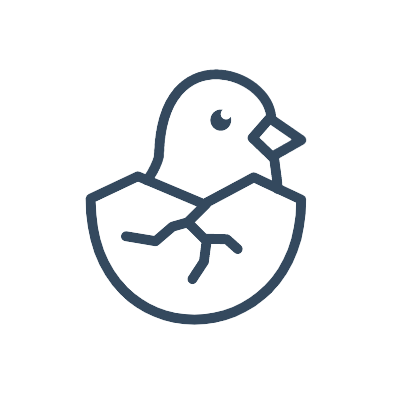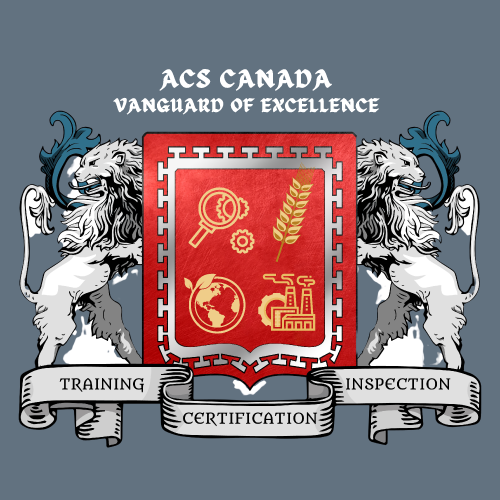GFP Certification

GOOD POULTRY PRACTICES
WHY GOOD FARMING PRACTICE:
To try and prevent the disease from infecting the flock, good farming practices are the first line of protection. It is critical to keep the flocks in a clean, stress-free environment. Always supply enough feed for the birds' age and production level, as well as plenty of cold, clean water. Good agricultural methods will assist you in keeping your flock healthy.
Review of GFP's main requirements:
1-Biosecurity planning:
A biosecurity plan should be implemented on all poultry farms. Implement biosecurity techniques on farms to reduce disease spread..
2-Manage human contact with birds:
Always begin with the youngest stock and work your way up to the oldest. Check to see whether your visitors have had in contact with poultry in the previous three days or if they have just been overseas. , Prevent anyone who has recently come into touch with other poultry from engaging with your flock until they have followed the necessary biosecurity protocols required for your farm.
3-Identify, prevent and control disease and parasites:
Isolate diseased birds from the rest of the flock and quarantine new and returning birds. Allow a qualified person to practice medicine them if they are unwell. Separate new birds from the group for a month. Keep an eye out for any symptoms of illness, lice, or mites. Always buy your birds from a trusted provider.
4-Provide clean and appropriate housing:
Allow ample floor, feed, and water space, as well as shade, to meet the species' needs (welfare), Make sure the perches are clean and at a reasonable height for the breed. Concrete floors should be covered with bedding material such as sawdust, pine shavings, straw, or sand; these coverings are easier to clean than dirt floors. Pens should be adequately ventilated and free of moisture and draughts. House fowls, ducks, turkeys, and peafowl can all carry illnesses that infect the others. Provide shelter that will keep wild birds at bay.
5-At the end of each batch or production cycle:
Disinfect and insecticide-spraying the shed, remove old litter, rake over dirt floors, and spray with disinfectant or sprinkle with slaked lime, take out, clean, and disinfect all moveable objects, try to leave sheds empty for 10-12 days, if re-using litter, windrow for at least 5-6 days between batches, if sheds and pens are used continuously, aim to do a complete clean and disinfection at least once per year Clean and flush water bowls, lines, and feeders on a routine basis, clean nest boxes on a regular basis, remove filthy litter and avoid using mouldy bedding material, and fence off-range areas to prevent predator damage.
6-Equipment
Equipment should not be shared between flocks or premises. If this is inevitable, only share critical equipment and ensure that it is fully sanitized and disinfected before use. Clean and fumigate chicken incubators on a regular basis.
7-Prevailing poultry farm hygiene
Maintain a constant vermin control program. Maintain a clean and tidy environment around barns and range areas. Keep the grass mowed and any trash removed; collect and dispose of deceased birds on a daily basis. Never give dead birds to your cats or dogs. Feed should be stored in a cool, dry, vermin-proof environment to retain freshness, avoid mould growth, and contamination from other animals.
BENEFITS FROM IMPLEMENTATION AND GFP CERTIFICATION
Compliance with agricultural and farm law,
Improve food safety in farm production and distribution,
Increase business awareness of risks, food safety hazards, and critical control points,
Increase consumer confidence, supports business leadership through the direction of resources to safety-critical elements of the process,
Reduction in complaints by reduced risk of negative publicity and improved responsiveness to problems through devised corrective action.
Training at ACS Canada
ACS employs accelerated learning methods to ensure a comprehensive grasp of all certificates. Our approach involves contextualizing your learning through a wide array of options, including classroom instruction, workshops, as well as interactive and online sessions.
GFP Certification Training - 1
GOOD AGRICULTURAL PRACTICE

GAP-GENERAL
GOOD AGRICULTURAL PRACTICE(GAP) Training Course Why GAP training? The application of existing knowledge to the sustainable use of the natural resource base for the production of safe, healthy food and non-food agricultural products in a sustain manner, while maintaining economic viability and social stability, is the concept of Good Agricultural Practices. The GAP depict the […]
More About This CourseGFP Certification Training - 2
GMP Requirements

GMP – Requirements & Documentation
This course aims to teach the principles and practices of GMP requirements in the food industry.
More About This CourseGFP Certification Training - 3
QMS REQUIREMENTS

ISO 17025 – Requirements
The aim of this course is to provide delegates with the knowledge and skills required to understand ISO 17025 requirements.
More About This CourseGFP Certification Training - 4
HACCP REQUIREMENTS

HACCP – Requirements & Documentation
The aim of this course is to provide delegates with the knowledge and skills required to understand HACCP requirements and documentation.
More About This Course
